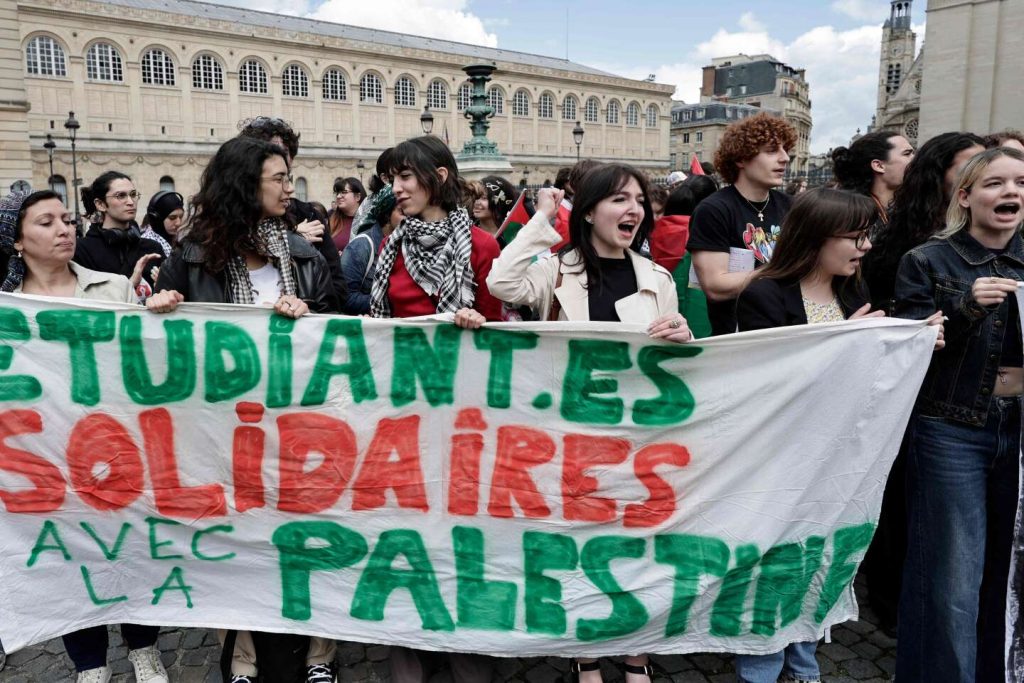In recent weeks, many universities in France and around the world have been occupied by students demanding an immediate ceasefire in the Gaza Strip. This phenomenon has attracted significant media attention, although it is not entirely new, as students have a long history of involvement in public affairs. The university has traditionally been a place for intellectuals to engage in reflection and discussion about society. The first recorded university revolt in France dates back to the medieval period in 1229, but large-scale movements as we know them emerged with the democratization of universities in the 1950s and 1960s. Since then, students have regularly taken up various international issues, including the Vietnam War, the Gulf War, and more recently, the right to abortion in the United States.
In a video featuring historian Robi Morder, a specialist in student movements, the history of these mobilizations is traced. The video highlights how students have historically been involved in addressing societal issues and participating in movements on a global scale. The current student mobilization at Sciences Po is also discussed in more detail in the video. Students at Sciences Po have been actively engaged in debates and actions related to the conflict in Gaza, facing challenges such as blockades, tensions, and media pressure. The historical context provided by Morder sheds light on the importance of student activism and its role in shaping public discourse on international issues.
The video is part of a series called “Comprendre en trois minutes,” produced by the Video section of Le Monde. These informative videos aim to contextualize major events in a brief format, making current affairs accessible to a wide audience. The videos are originally released on platforms like TikTok, Snapchat, Instagram, and Facebook, reaching a diverse audience and providing them with essential information in a concise and engaging manner. The motion design work in the video is credited to Marion Huysman and Pia Vidal, who have visually translated the information into an easily digestible format for viewers.
Student activism has a long history of playing a crucial role in shaping public opinion and influencing political decisions. From protesting against wars to advocating for social justice issues, students have been at the forefront of numerous movements throughout history. The university environment has served as a breeding ground for critical thinking, debate, and activism, providing students with the tools and knowledge to engage in meaningful causes. The current wave of student mobilization in response to the conflict in Gaza is in line with this tradition of activism, as students continue to use their voices and actions to push for change and raise awareness about global issues.
As movements unfold on university campuses around the world, students are demonstrating their commitment to advocating for peace, justice, and human rights. By occupying university spaces and engaging in protests, debates, and media campaigns, students are making their voices heard and calling for international attention to urgent crises. The combination of historical context provided by experts like Robi Morder and the ongoing student mobilization at institutions such as Sciences Po sheds light on the enduring impact of student activism and the critical role that young people play in shaping the future of our society.


